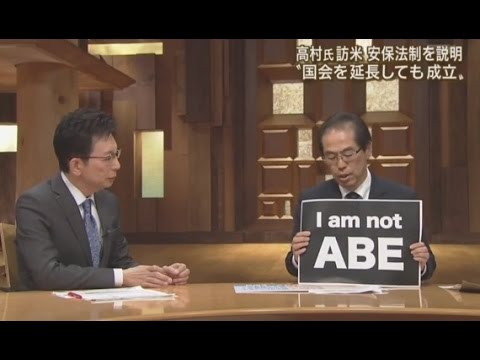LEXIE TUCKER WRITES – In a piece from The Japan Times, Columbia University’s Gerald Curtis states that, “the [Japanese] government doesn’t have to muzzle the press if the press takes it upon itself to do the muzzling.” Shigeaki Koga, an ex-bureaucrat at Japan’s Ministry of the Economy, wants to tear off this media muzzle and bite back.
In April 2015, Asia Media International reported on Koga, a well-known media critic of Japanese Prime Minister Shinzo, who endured “fierce bashing” from the prime minister’s office for some of his controversial remarks. He has now spoken out against the Japanese government’s censorship in an op-ed feature in The New York Times.
According to his piece “The Threat to Press Freedom in Japan,” Koga revealed that after appearing on a local news station a few days after he was called in for questioning, an “executive member of the L.D.P. reportedly told some journalists, ‘I heard that there was a TV station which allowed Mr. Koga to appear on a program. What a courageous TV station, I should say!’” Many have perceived this as a threat to Koga, as well as the stations that allow him to voice his concerns.
It doesn’t help that these stations are doing nothing to fight this blatant violation of press freedom. According to Koga, TV Asahi scolded those who had produced the program in which he criticized the government. “[I]nstead of invoking the anti-interference provisions of the broadcasting laws to resist questioning by the L.D.P…executives complied with the party’s summons,” he wrote.
The Economist mentions that an LDP official stated Abe would never revoke a broadcasting license because that would be political suicide. Be that as it may, it appears the government is taking baby steps toward deterring reporters who get a too ambitious. For example, a new law could send journalists to prison for accepting leaked information, discouraging any desire to become the next Snowden or Assange.
This shikata ga nai (“it can’t be helped”) attitude is detrimental to the idea that journalists in democratic countries are the watchdogs of the people. No matter how difficult the battle may be, there is no honor in surrender.

